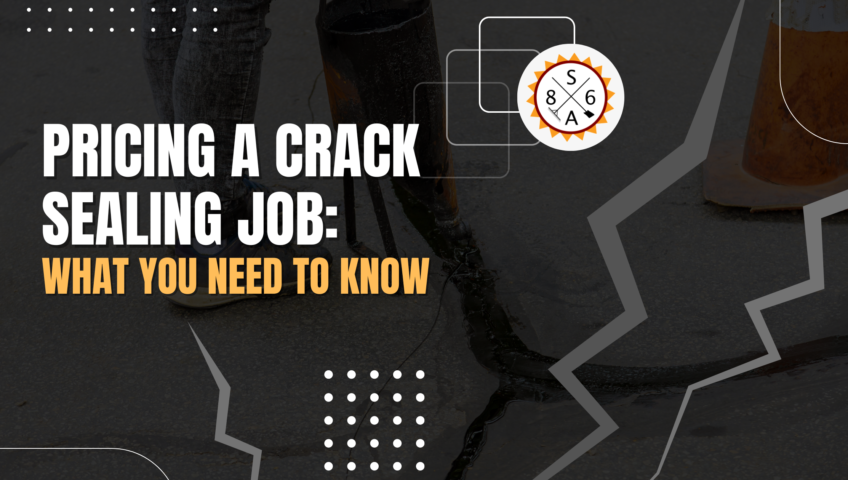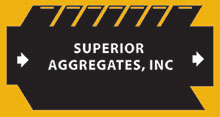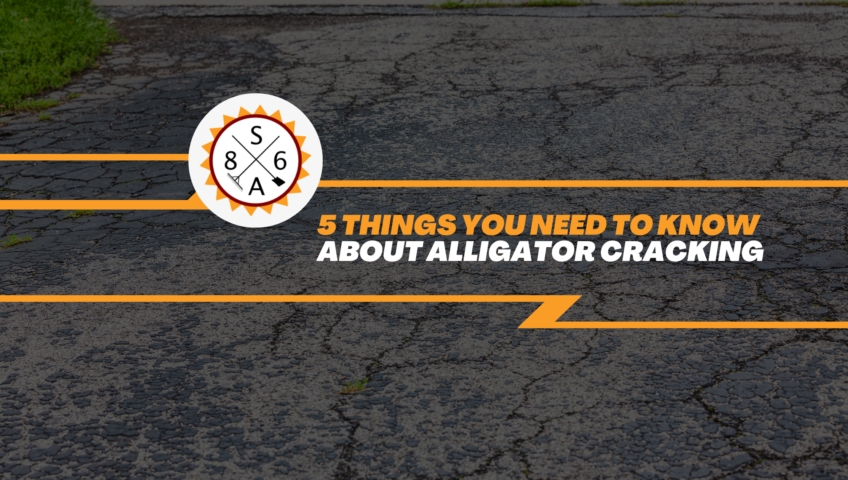
Pricing a Crack Sealing Job: What You Need to Know
One of the difficult things about pricing a crack sealing job is that no two projects are created in quite the same way. Sometimes, concrete repair can be done quickly. Other situations that go beyond normal “wear and tear” require a more extensive approach.
Regardless, so long as you break the process down into a series of smaller and more manageable steps, you’ll be able to come up with an accurate estimate in terms of the crack sealing cost to work from moving forward.
Surface Preparation for Concrete Companies
One of the most important things to understand about concrete repair is that it’s not something you can just hastily get started on. Preparing the surface is one of the keys to success and that process can take more time than people realize.
Naturally, the surface will need to be spotless before work can begin in earnest. If you’re working with a modestly-sized driveway, this will go faster than if you’re talking about a massive commercial parking lot with A) a lot of dust, dirt, and debris that need to be cleared, and B) countless large and small cracks.
The Amount of Crack Sealing Material You’re Going to Use
Next, you have to consider the amount of crack sealing material you’re going to use. This will typically be dictated by the size of the space you’re working with, as well as how extensive the cracks are that you’re working to repair.
If the job involves a very large, very old parking lot, you’re probably dealing with more extreme cracks. Because of that, you’ll use more asphalt crack filler than if you were performing routine maintenance on a more recent lot. The more material you use, the more expensive the job will be.
Manpower Cost
No discussion of anticipated crack sealing cost estimates would be complete without diving into one of the most important parts: manpower. Each person performing the work will need to be paid appropriately, and it should come as no surprise that a job that requires multiple people will naturally cost more than ones that will be completed alone.
Making sure that your people have access to the best equipment (like gas-powered crack cleaning machines, for example) will help them work more efficiently, which should cut down on a lot of the manpower requirements (and labor costs) as a result.
The Type of Material You Are Using
Finally, you need to carefully consider the type of material you’re using and how that will impact the overall cost of the project. Some types of premium materials are simply more expensive than others, even if you’re talking about the same quantity or volume.
When using asphalt seal coating, for example, there are multiple types to consider. You can choose between asphalt emulsion, coal tar emulsion, acrylic asphalt sealer, and gilsonite. Asphalt emulsion is typically on the more cost-effective side of the price scale. However, depending on the conditions of the job you find in front of you, it may be wise to invest in something on the pricier end.
Even the brand of a particular material and the store you choose to buy it from can impact how much you will pay, so be sure to take all of this into consideration and adjust your prices accordingly.
If you’d like to find out more information about the factors that impact crack sealing cost and how you should price each job, please don’t delay – contact us today.
One of the difficult things about pricing a crack sealing job is that no two projects are created in quite the same way. Sometimes, concrete repair can be done quickly. Other situations that go beyond normal “wear and tear” require a more extensive approach.
Regardless, so long as you break the process down into a series of smaller and more manageable steps, you’ll be able to come up with an accurate estimate in terms of the crack sealing cost to work from moving forward.
Surface Preparation for Concrete Companies
One of the most important things to understand about concrete repair is that it’s not something you can just hastily get started on. Preparing the surface is one of the keys to success and that process can take more time than people realize.
Naturally, the surface will need to be spotless before work can begin in earnest. If you’re working with a modestly-sized driveway, this will go faster than if you’re talking about a massive commercial parking lot with A) a lot of dust, dirt, and debris that need to be cleared, and B) countless large and small cracks.
The Amount of Crack Sealing Material You’re Going to Use
Next, you have to consider the amount of crack sealing material you’re going to use. This will typically be dictated by the size of the space you’re working with, as well as how extensive the cracks are that you’re working to repair.
If the job involves a very large, very old parking lot, you’re probably dealing with more extreme cracks. Because of that, you’ll use more asphalt crack filler than if you were performing routine maintenance on a more recent lot. The more material you use, the more expensive the job will be.
Manpower Cost
No discussion of anticipated crack sealing cost estimates would be complete without diving into one of the most important parts: manpower. Each person performing the work will need to be paid appropriately, and it should come as no surprise that a job that requires multiple people will naturally cost more than ones that will be completed alone.
Making sure that your people have access to the best equipment (like gas-powered crack cleaning machines, for example) will help them work more efficiently, which should cut down on a lot of the manpower requirements (and labor costs) as a result.
The Type of Material You Are Using
Finally, you need to carefully consider the type of material you’re using and how that will impact the overall cost of the project. Some types of premium materials are simply more expensive than others, even if you’re talking about the same quantity or volume.
When using asphalt seal coating, for example, there are multiple types to consider. You can choose between asphalt emulsion, coal tar emulsion, acrylic asphalt sealer, and gilsonite. Asphalt emulsion is typically on the more cost-effective side of the price scale. However, depending on the conditions of the job you find in front of you, it may be wise to invest in something on the pricier end.
Even the brand of a particular material and the store you choose to buy it from can impact how much you will pay, so be sure to take all of this into consideration and adjust your prices accordingly.
If you’d like to find out more information about the factors that impact crack sealing cost and how you should price each job, please don’t delay – contact us today.

